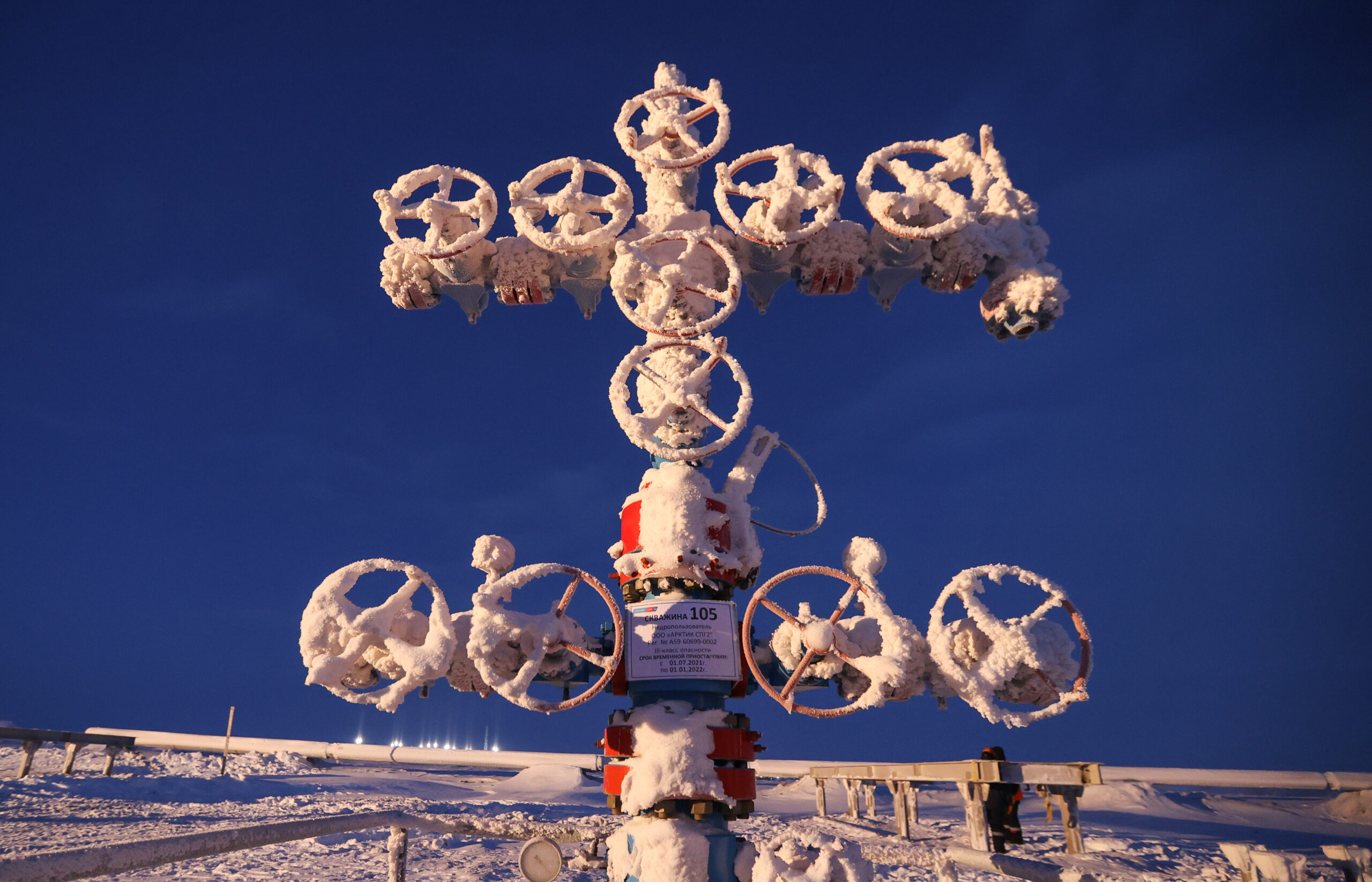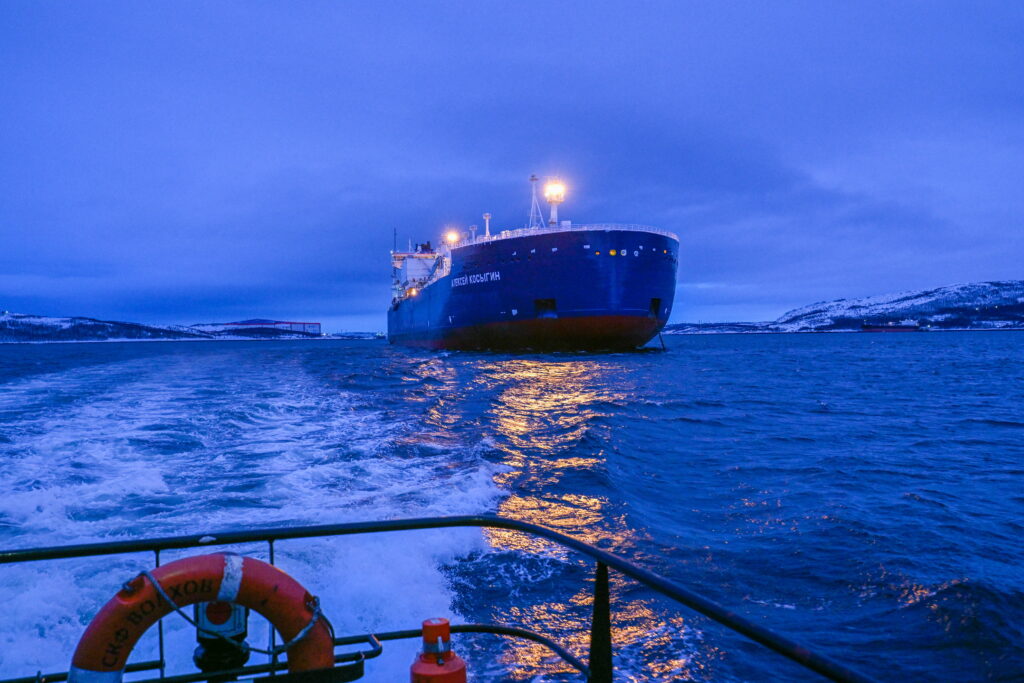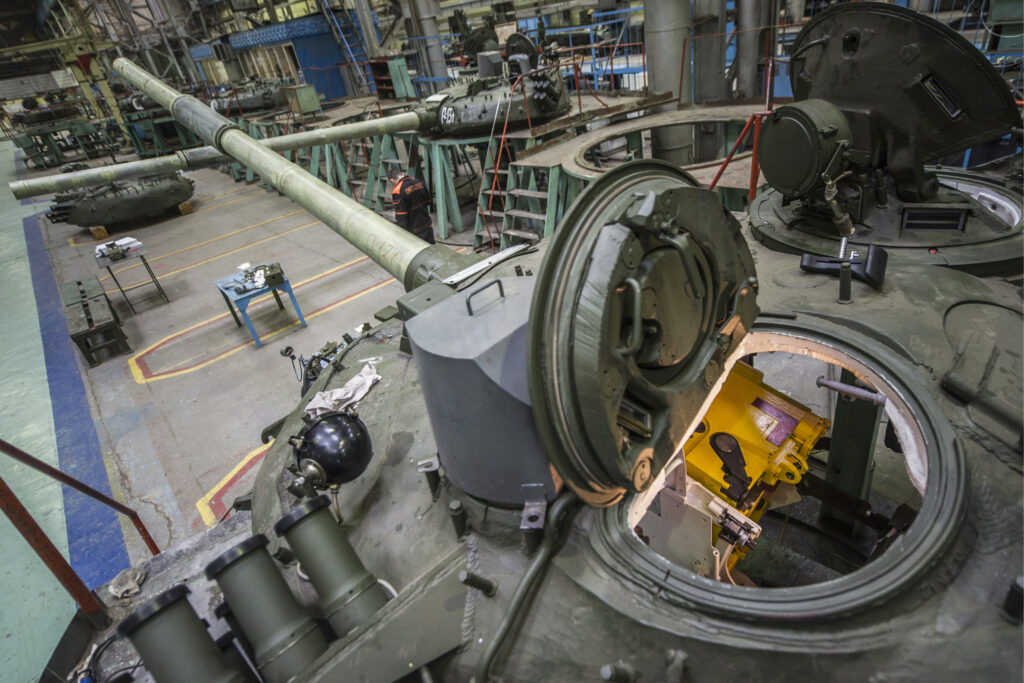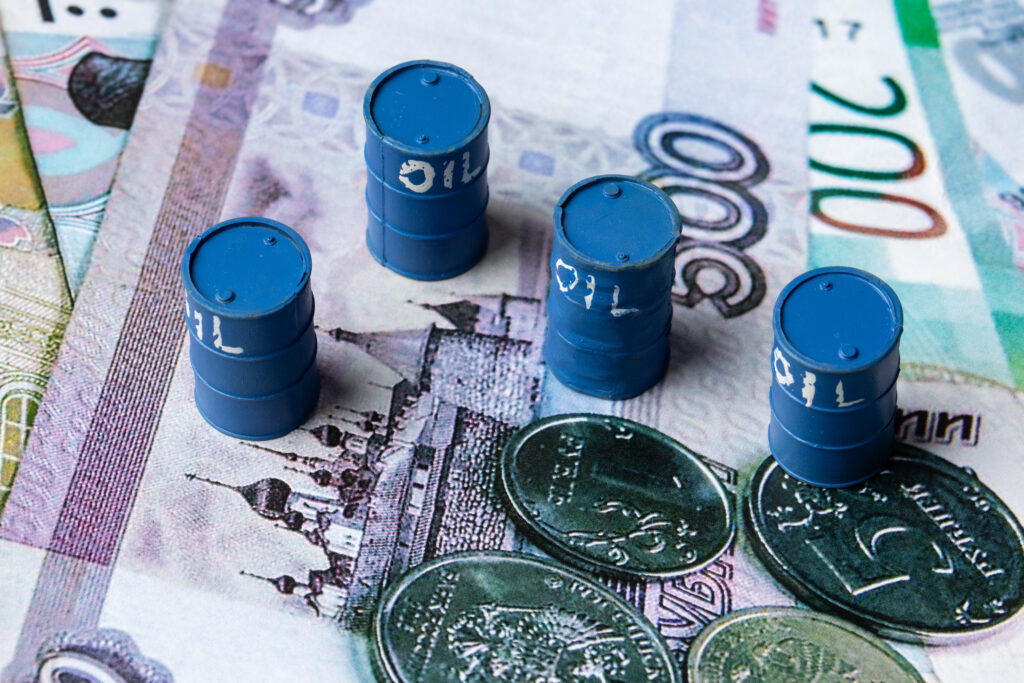On 2 November, the US Treasury Department issued the so-called General License No. 76A, imposing a further package of sanctions on Russian individuals and entities: Sistema, St. Petersburg Exchange, Arctic LNG 2 and their subsidiaries. This move by the American authorities has caused a great stir, mainly because it targets Arctic LNG 2 — the operator of a huge liquefied natural gas (LNG) production project, the ultimate beneficiary of which is Novatek. This project dates back to 2017 and is being implemented in partnership with several foreign companies: France’s Total Energies, China’s CNOOC and CNPC, and Japan’s Arctic LNG consortium (each of which owns 10% of the project). Annual production at full capacity was expected to be around 20 million tons of liquefied natural gas starting from 2026. The first stage of the complex was inaugurated this summer with much pomp and circumstance, in a ceremony attended by Putin, and deliveries were due to start in January 2024 (according to some reports, the entire volume for next year has long been contracted).
Western policy on «gas cooperation» with Russia is extremely contradictory and inconsistent. On the one hand, the US (as well as Canada and the UK) imposed a complete embargo on the purchase of any energy supplied by Moscow in the very first days of the full-scale war against Ukraine. On the other hand, the European Union adopted a paradoxical strategy, first banning coal supplies from Russia (which had almost no impact on the state of the federal budget), then imposing an embargo on oil, and finally on oil products, and yet at the same time not limiting gas supplies, despite the fact that it was in this area that the Kremlin’s blackmail was most visible last year, and Moscow’s additional revenues amounted to billions of dollars.
As a result of the aggravation of the situation and against the background of a steady reduction of Russian gas supplies in all directions (except for the Ukrainian route), on 26 September a series of clandestine bombings and subsequent underwater gas leaks damaged two branches of Nord Stream, in which many today see a clear trace of Ukrainian involvement. But even after that, Europe did not stop buying gas from Moscow. Some countries (mainly Slovakia and Hungary) continue to receive it via Ukraine (Kyiv promises not to extend the transit agreement with Gazprom after 31 December 2024). Others receive Russian gas via the Turkish Stream branch, but the majority — in the form of liquefied natural gas delivered by sea from Russian Arctic ports, where in recent years Novatek, Gazprom and Lukoil have been involved in the relevant projects. Since LNG is now the only way for Western European nations, which experienced a shortage of this type of fuel last winter, to buy gas from Russia, we should not be surprised that the purchase of fuels will only increase: in the first half of 2023, the EU purchased 52% of the total volume of Russian LNG.
The inclusion of Arctic LNG 2 on the US SDN list automatically excludes not only US companies, but anyone doing business with US registered companies, from doing business with Arctic LNG 2. In other words, this should mean a complete halt to European cooperation with the Russian company — both in the sphere of investment (note that even this year European companies have supplied Arctic LNG 2 with a variety of equipment for more than $ 400 million under contracts signed before the start of the full-scale invasion) and trade (the purchase of liquefied gas from this source will also become toxic). If these restrictions come into force (the deadline after which all deals will be considered illegal is 31 January 2024), the EU will lose about 15% of its total LNG imports. Although storage facilities are filled to record levels on the eve of winter, this is hardly good news for the Europeans. But only for them.
And here we come to the peculiarity that distinguishes this sanction from most of those previously announced. Many of the sanctions imposed on Russia since the beginning of the war have not been very effective; some have had «side effects» that have been more devastating for the countries that announced them than for Russia. However, both their ineffectiveness and the losses they have caused have been unforeseen and have affected the countries that have taken such decisions or the entire Western community. The Europeans, who announced energy embargoes against Russia, provoked a market shortage and suffered losses, the maximum estimate of which is 750 billion euros. The Americans, who took the lead on sanctions last year, have maintained a hard line despite the rise in inflation, which the White House has blamed on high fuel prices. All Western countries risked their reputations in the financial sphere by seizing the assets of the Bank of Russia and the assets of private Russian businessmen on the sanctions lists. The imposition of a «price ceiling» on Russian oil benefited third countries, notably China and India, but did not bring unilateral benefits to any of the allies. Against this background, the latest US decision marks a new turn in the sanctions saga.
Since the late 2000s, thanks to new technologies for developing oil and gas fields, the US has been rapidly increasing its oil and gas production, thereby overcoming its dependence on imports. In 2011, the United States became the world’s largest producer of gas, overtaking Russia, and in 2017 it became the largest producer of oil, overtaking Saudi Arabia. Having become self-sufficient in being able to produce all types of energy, since 2019, the US has become a net exporter of energy commodities, and it is in the field of LNG that it has achieved the greatest success, increasing its monthly supply by about 40 times in the last eight years, to 6.5 — 7.2 million tons. According to the International Energy Agency’s forecasts, by 2030, LNG exports from the US will account for more than 30% of the world’s cross-border trade in this type of resource (at the end of 2022, this indicator was around 20%). The explosive growth (almost 2.2 times) of American exports has saved Europe in the winter of 2022−2023. It was partly because the US managed to compensate for part of the «absence» created by the loss of Russian supplies, partly because the prospect of almost unlimited US expansion made other exporters more accommodating, which eventually led to a stabilization and then a fall in prices on the European gas market from November 2022.
The imposition of sanctions against Arctic LNG 2 means a ban on the purchase of liquefied natural gas from its facilities by any buyer. The US Assistant Secretary of State for Energy Resources, Geoffrey R. Pyatt, who is well aware of this, minced no words at a Senate hearing, declaring that «our goal is to kill this project» and «to put an end to Russia’s development as the world’s largest LNG exporter». We can say that Washington is doing what Brussels has not done of its own free will (it should be recalled that in recent months many politicians and activists in Europe have raised the question of refusing any Russian fuel, but in response they have heard that «Europeans do not expect to take such a step in the near future» and «the revision of the strategy is realistic only in the distant future»). At the same time, many EU countries have rapidly increased their LNG purchases from Russia, mainly from Novatek’s Yamal LNG and, to a lesser extent, from Gazprom’s plants in the Leningrad region. Spain, Belgium, France and the Netherlands are the absolute champions in terms of the sheer volume of their purchases, while in Greece, for example, Russian LNG accounted for 72% of the local market in September 2023. It is in this context that the Americans are introducing sanctions for the first time, sanctions which can cause considerable damage to Europe and which appear not to have been agreed in advance.
It is difficult to imagine that American companies will not be the main beneficiaries of this decision, as they will be able to further expand their share of the European gas market. Thus, for the first time, sanctions have become an instrument of unfair competition between the Western allies of Ukraine. This also comes at a very unfortunate moment, when Washington transparently hints to the European powers that in the near future they may be forced to bear the main financial burden of assistance to Kyiv, and the Europeans themselves say that such a scenario is impossible.
Most likely, this measure will not cause a significant split in the West. European politicians took Washington’s decision calmly, saying that they were studying the consequences and did not consider them critical for their countries’ energy security. But its consequences will be more serious for Russia than for Europe. For many years, Moscow has neglected the production and supply of LNG to the world market. The first venture in this field was made by international investors in the «Sakhalin-2» project, and only then did «Novatek» and other companies begin to invest in liquefaction capacities in the Arctic and in the creation of a fleet of gas carriers capable of operating at high latitudes. All these projects were carried out in cooperation with European, Japanese and Chinese companies, using mainly imported equipment and serviced by the tankers built in South Korean shipyards to Russian orders (the «glorified» «Zvezda» shipyard has so far managed to launch only two such ships). The sanctions imposed on gas and oil exploration and production projects in the Arctic for 2014−2022 did not, for the most part, affect the process of LNG production and transportation, focusing primarily on exploration, drilling and production. This part of the Russian gas sector remained unaffected by the sanctions and therefore developed very dynamically. The country’s LNG production grew from 3.8 million tons in 2009 to more than 32.5 million tons in 2022, of which 98% was exported. The Russian authorities have recently openly stated that they intend to increase the country’s share of the global LNG market from the current 8.2% to 20% by as early as 2030.
No matter how hard Moscow tries to pretend that the new US sanctions are secondary and unimportant, they will have a significant impact on Russia’s gas business. Firstly, because the plans for a rapid increase in LNG production will obviously not be realized and Russia will remain a niche player in this market with a share of no more than 10% for decades to come. Moreover, it remains unclear where the volumes already produced will be exported to: in the summer of this year, Europe accounted for more than half of Russian LNG supplies. It is unrealistic to redirect them to China, partly because of logistical peculiarities: the ships delivered and ordered are suitable for sailing from Sabetta to the Barents Sea and further west along the Norwegian coast, but they cannot sail all year round along the Northern Sea Route towards the Bering Strait. Finally, we should not forget the fact that Novatek and Lukoil will have a very hard time: unlike Gazprom, which has the opportunity to make additional profits both by raising gas prices on the domestic market and by maintaining supplies to Turkey, a number of European countries and China, the gas business of private companies was almost entirely dependent on the development of the liquefied gas market, the export of which was not covered by Gazprom’s monopoly. In other words, most of the benchmarks in the Russian gas industry may change significantly — for the second time in the last three years.
It is too early to predict today the outcome of the sanctions imposed by the Americans. The European authorities are yet to comment on the announced measures: it is possible that companies involved in Russian LNG projects will seek various forms of relief. It is unclear whether the production of tankers for Novatek in foreign shipyards will stop. Finally, the position of the Chinese partners is worth noticing: China has not joined the Western sanctions and buys Russian oil and gas, but it is one thing not to join the sanctions and quite another to ignore the ban on cooperation with a company on the SDN list. In any case, we are dealing with a very interesting phenomenon, when the US, formally still committed to marginalizing Russia as an aggressor country, actually dictates Europe’s strategy of its sanctions policy and still manages to provide additional advantages to its own producers. Such competition through sanctions is something entirely new in modern sanctions policy.










